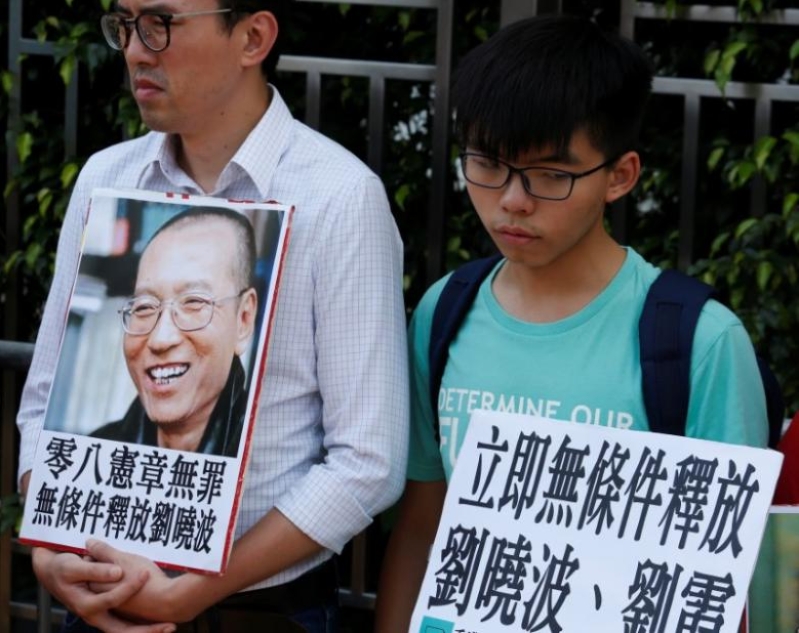
The United States has urged China to lift all restrictions on renowned democracy activist and Nobel laureate Liu Xiaobo amid reports he is nearing the end of his battle with late-stage liver cancer.
According to the Hong Kong Free Press, the US embassy in Beijing and Florida Sen. Marco Rubio joined a number of Chinese and foreign human rights lawyers and activists demanding the unconditional release of the 61-year-old democracy campaigner, who had been imprisoned in northeast China.
"We call on the Chinese authorities to not only release Mr Liu but also to allow his wife, Ms Liu Xia, out of house arrest," said Mary Beth Polley, a spokeswoman for the US embassy in Beijing.
China should "provide them the protection and freedom such as freedom of movement and access to medical care of his choosing to which they are entitled under the Chinese constitution and legal system and international commitments," she added.
Said Rubio, who chairs the US congressional-executive commission on China, said: "I urge President Trump to seek Nobel laureate Liu Xiaobo's immediate humanitarian transfer to the United States. Liu Xiaobo, and countless others like him who courageously seek peaceful change in China, are heroes worthy of honor, not criminals deserving to be tortured or unjustly punished."
Liu was jailed for 11 years in 2009 for "inciting subversion of state power" after he helped write a petition known as "Charter 08" calling for sweeping political reforms. His wife, Liu Xia, has been under house arrest since 2010 and suffered a heart attack in 2014. She also reportedly struggles with depression.
Liu, who was released on medical parole on Monday, was found in late May to have advanced liver cancer and was hospitalized soon after, said one of the lawyers, Shang Baojun.
"It seems to be very serious, very serious," he said. "If it was an early stage of cancer, then that would be easier to treat. But at this late stage, the treatment seems much more difficult."
In a video posted by a friend, Liu's wife said the cancer cannot be treated with chemotherapy or operations at this stage. Liu and his wife reportedly hoped to be allowed to travel outside China to seek medical treatment, but Communist authorities have refused to comply with their request. Appeals to be moved to his home of Beijing have also been rejected.
"If things continue as they are, if he is not allowed to receive better treatment, then we are just waiting for him to die," said Hu Jia, a longtime friend of Liu. "If he stays where he is, the only option is to make him comfortable with drugs to numb the pain."
According to The Guardian, China on Tuesday criticized those who questioned its decision to keep Liu in the country for treatment.
"All other countries should respect China's judicial independence and sovereignty and should not use any so-called individual case to interfere in China's internal affairs," Lu Kang, a foreign ministry spokesman, said at a regular press briefing. "We have said many times that no country has the right to gesticulate about China's internal affairs."
The New York Times reports that Chinese prisons are allowed to grant medical parole to inmates who are seriously ill or near death. Shang, the lawyer, said last year that Liu's failing health could have qualified him for medical parole even then, but Liu refused to admit guilt as a condition for release.
In Hong Kong, about 70 protesters - including prominent democracy activists Martin Lee and Joshua Wong - took to the streets, demanding Liu's immediate release and chanting that the Chinese government was a "murderer", reports the HKFP. Hundreds of Chinese lawyers, activists and friends have also signed a petition calling on authorities to give Liu "complete freedom" and allow his wife to "have contact with the outside world".
Since 2012, Chinese president, Xi Jinping has launched a widespread crackdown against human rights lawyers, book publishers, and Christians as part of his "anti-corruption" campaign.







